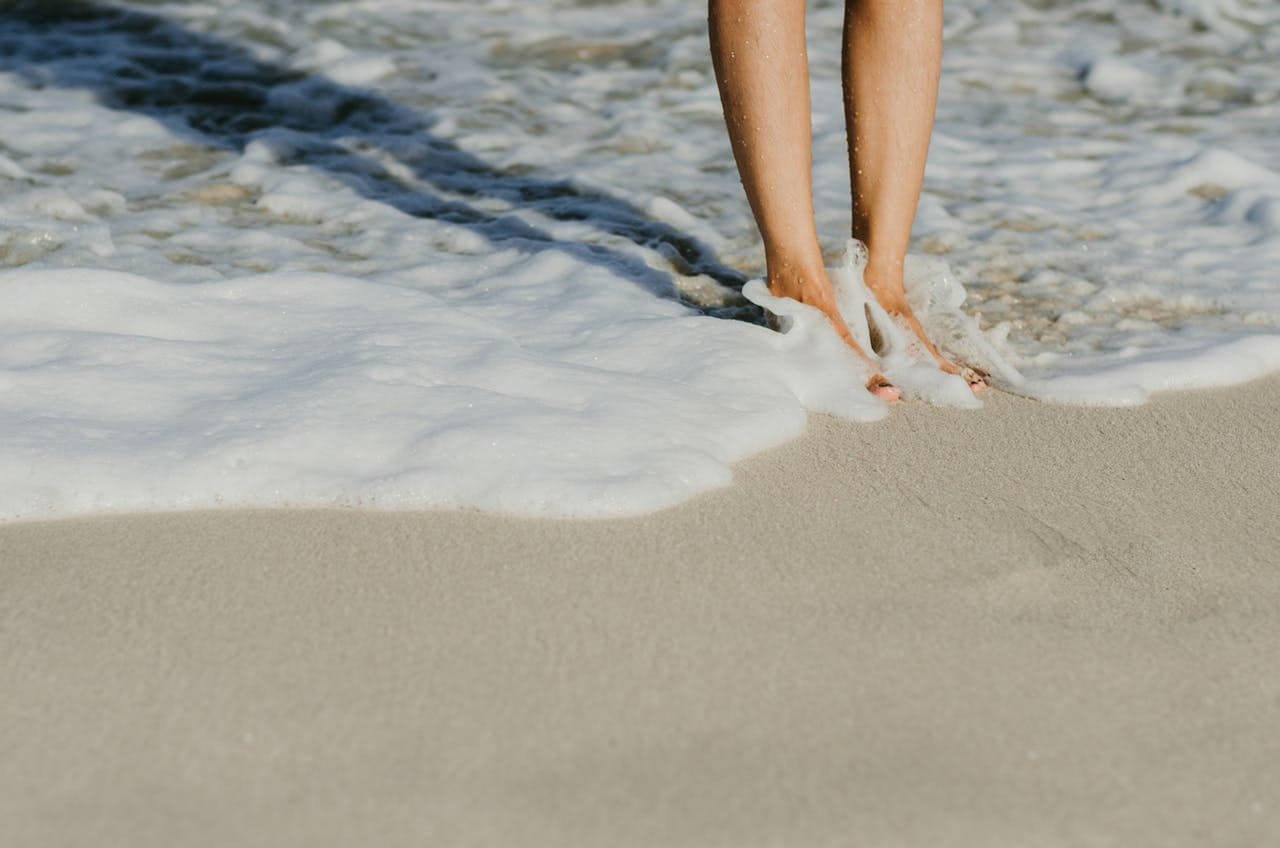Understanding thalassophobia (fear of the ocean)
In a Nutshell
Thalassophobia is an intense fear of large, open bodies of water such as the ocean, which can lead to distress and avoidance behaviours.
The fear often becomes more noticeable during warmer months when beach outings and coastal holidays are more common.
With the right tools, including therapy, gradual exposure, and supportive planning, you can learn to manage this fear at your own pace.
While the ocean often brings to mind images of summer relaxation, cool waves, and sandy beaches, not everyone finds comfort in the sea. If you experience thalassophobia, you may feel deeply uneasy or frightened by the sight or thought of deep water.
You might avoid beach holidays, turn down boat trips, or even feel anxious just seeing images of the sea.
What is thalassophobia?
Thalassophobia refers to a persistent and intense fear of deep or open water, especially the ocean. The word comes from Greek, with “thalassa” meaning sea and “phobos” meaning fear.
It's not officially classified as a separate diagnosis in the DSM-5, but it falls under the category of specific phobias. This fear often includes anxiety about what might lie beneath the water, the feeling of being far from shore, or the vast, unknown space the sea represents.
Thalassophobia is often confused with aquaphobia, which is the fear of water itself. Aquaphobia can include anxiety around swimming pools, baths, or even rain. In contrast, thalassophobia is more connected to the size, depth, and mystery of the ocean or other expansive bodies of water.
You may feel completely comfortable swimming in a pool but find the idea of open water deeply unsettling.
Why it often shows up in summer
Summer is typically filled with beach trips, coastal holidays, or time spent near water. These situations can bring your fear to the surface more often.
The pressure to join others in water-based activities, along with the sensory experience of the ocean, may make this time of year particularly challenging.
Related: Summer anxiety
What causes thalassophobia?
Evolutionary factors
Some researchers suggest that humans may be naturally cautious of environments they cannot fully control or see into, such as deep water. This caution may have helped our ancestors stay safe from hidden dangers. That doesn't mean you're destined to fear the sea, but it may help explain why such fears are relatively common.
Past experiences
If you’ve had a frightening experience involving water, such as a strong wave, a near-drowning, or an unsettling boat trip, it could contribute to a lasting fear. Witnessing someone else’s distress around the ocean can also shape how you feel.
For others, the fear develops gradually, perhaps influenced by vivid media portrayals or ongoing discomfort in unfamiliar natural settings.
Psychological patterns
You may notice certain thoughts driving your anxiety. These can include imagining what lurks under the surface, fearing you’ll be pulled away from shore, or worrying about drowning. Over time, avoidance can reinforce these thoughts, making the fear feel even stronger.
How thalassophobia can affect your life
Emotional and behavioural patterns
If you're living with thalassophobia, it’s likely that you:
Avoid holidays near the coast or turn down boat invitations
Feel anxious days or weeks before a planned water-based outing
Experience fear when seeing ocean scenes in films, photos, or advertisements
Find yourself feeling out of place or isolated when others enjoy the sea
Physical symptoms
Just thinking about the ocean may trigger strong physical sensations, including:
Racing heartbeat
Nausea
Difficulty breathing
Dizziness or feeling faint
Sweating or chills
Some people experience full panic attacks, while others feel a general sense of dread or discomfort when the topic or setting comes up.
How to manage thalassophobia
Therapy-based approaches
Cognitive behavioural therapy (CBT): Helps you identify the thoughts and beliefs behind your fear, and teaches skills to challenge and replace them with more balanced thinking.
Exposure therapy: With the support of a trained professional, you slowly and safely face situations that trigger your fear, starting with less intense experiences (like looking at ocean photos) and working toward more direct exposure.
Mindfulness and relaxation: Grounding techniques, breathing exercises, and body awareness can help you stay calm and present during anxiety spikes.
Self-guided strategies
Start small. You might begin with a quiet beach walk rather than jumping into swimming.
Bring a support person. Having someone who understands what you're experiencing can ease the pressure.
Choose your timing. Visiting beaches early in the day or during off-peak seasons may help you feel more in control.
Use grounding tools. These can include portable relaxation aids (such as calming music or essential oils), breathing practices, or focusing on your senses when anxiety builds.
Set boundaries. Let people know what you're comfortable with so you can enjoy shared experiences without pushing past your limits.
Final thoughts
If you’ve been feeling held back by a fear of the ocean, know that it’s a valid experience. You’re not simply being difficult, and you don’t have to face this fear alone or all at once. Understanding what triggers your anxiety and why it feels so strong is the first step towards managing it.
Support is available, and progress often begins with small, steady changes. Whether you aim to feel more at ease on a beach walk or eventually enjoy a boat trip, your path forward is your own, and every step counts.
Get Support
Overcome your anxiety and book a free video consultation with one of our therapists
Essential Reading about Anxiety
Anxiety Therapists Available Now
VIC
Psychologist
Hi, I'm Jayme! I am a registered psychologist with a passion for helping individuals navigate life's challenges. I have experience working with a diverse range of people ...More
NSW
Psychologist
Hi! I'm Katherine, a registered psychologist who provides client focused sessions with compassion and evidence-based care. I am passionate about creating a safe space for...More
QLD
Psychologist
I am a psychologist with general registration, who houses an array of life and professional experience in counselling and psychology across the lifespan. I am a massive e...More








